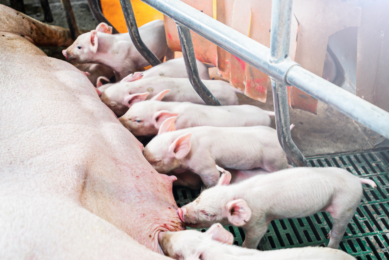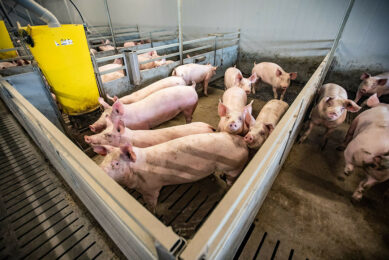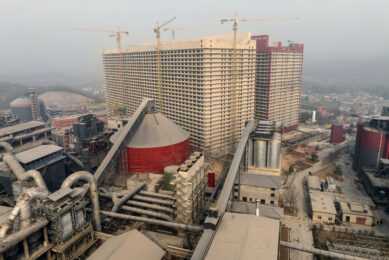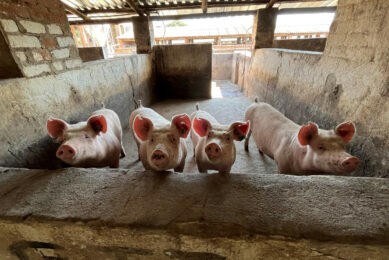Pigs and bubbles
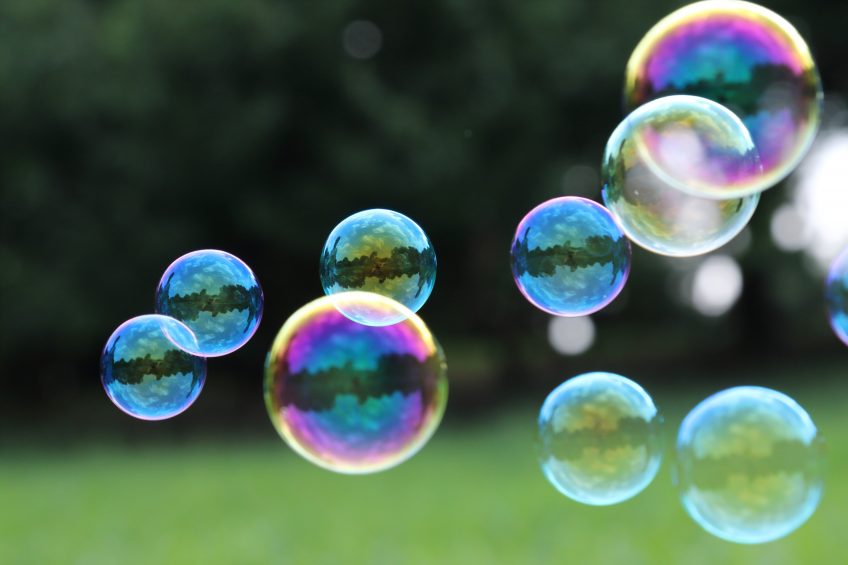
In the media, discussions about the livestock business are becoming increasingly polarised. Pig Progress editor Vincent ter Beek noticed how many hard-working swine farmers all over the world feel misunderstood by a never-ending flow of criticism from welfarists. What to do?
Everyone is living inside their own bubble. You, dear reader, are, so is your neighbour, the world’s best scientists – and yes, even I am. By a bubble, I mean your own set of beliefs, your frame of reference, your principal opinions – that’s what constitutes your own view on the world.
Difficult to see your own bubble
The funny thing is, most of the time, you’re not aware of being inside your own bubble. After all, you are a witness to your own mind, and you’re often surrounded by like-minded people. Social media are fairly responsive to the things you like online as well, automatically showing you what you like and agree to.
At some point, a person’s beliefs will gradually reach a fixed set of ideas– this is a mixture of personally held opinions as well as solid habits which have helped your community for years, perhaps decades. And well, if someone on television says something that sounds silly to you, you usually hear yourself grumble – or, alternatively, simply change the channel.
Religion and politics at World Pork Expo
In June, I visited the World Pork Expo, and I talked to many people, I listened and exchanged thoughts. I know, when being on a business trip, people always advise me not to talk about religion and politics, but somehow I ended up in a conversation about president Trump, the Republican Party, Brexit and even deep moral choices in life. To cut things short, in a fairly short time, it went from friendly, to serious and even fierce. At some point I was called ‘brainwashed’ and ‘presumptuous’, before 1 of the women in the group decided to leave the conversation, leaving me perplexed.
I felt confused for quite some time. First of all, I was amazed by the fierceness of the debate. I’ve had many discussions, but never before has somebody shown me outright hate just because of my opinions.
Cognitive dissonance
It didn’t take me too long to realise what had happened. I must have entered into someone else’s bubble. Whatever I said must have led to some cognitive dissonance – discomfort because what I said did not fit into her set of ideas.
Nevertheless, there was something else. I like to think of myself as being an independent, well-informed, well-educated mind. And yet, someone had come to the conclusion I was ‘brainwashed’. Over the weeks I came to realise that what she must have seen was my ‘bubble’.
Seeing my own set of values
And if she had been able to see it, so must I. That thought helped make me more aware of my own set of values, shaped by international, European, liberal thoughts. She wasn’t the only one who had felt uncomfortable – so had I. To go back to my comparison with the television – I had heard something that didn’t fit into my frame of reference and I had ended up grumbling!
(A side effect of all this was that it made me experience the polarised atmosphere in US politics – now I had not only heard about it, but also experienced it first-hand.)
Nobody is bad or malicious
Now why am I writing about this on a pig website? Ever since that moment, I’ve become more sensitive to bubbles and people’s tendencies to ignore or slash other views or values. It’s not because people with entirely different views are bad or malicious – it’s just because they can’t help themselves.
When it comes down to public views on swine production, I see 2 bubbles as well. Not having an agricultural background or farm of my own, yet writing about the agribusiness for over 10 years, I think I’m one of the few to observe both of them, but being inside neither.
Fire destroying a large swine farm
About 2 weeks ago, a large fire destroyed one of the largest swine farms in the Netherlands. Over 20,000 pigs tragically perished in the flames. It didn’t take long before animal welfarist organisations and even the Dutch political ‘Animal Party’ found their way to cameras and microphones. National newspapers rapidly ran these quotes as well. Lists were shared with how many farms with animals had burnt down in 2017 alone. The events sparked a rather one-sided debate online. It was seen as a convincing reason to become vegetarian. I’ve read that becoming vegan was the only moral thing to do.
In the agricultural community where I work, there was silence. You don’t have to explain to the farming community how it feels to lose such a business or to lose so many animals. And that in a time where keeping a farm going is sheer magic in the light of strict regulations.
Agricultural representatives pointed to the fact that the carnage had happened in a converted chicken house and most other farms would be better prepared for fire. Others wanted to get on with it and get the site cleaned – or figure out how the fire had started. Nobody said it aloud – the effect on the pig industry’s perception must be terrible.
A bubble full of moral superiority
I understand that, in the activist criticism, farmers perceive a bubble full of moral superiority, they see city people who think they possess nothing but the absolute truth. You just can’t win. The farming community in the Netherlands, just like many others in the world, chose not to grumble or fight. Most only hear the arrogance. Many farmers protect their bubble, mostly by taking no notice.
Now that leads me to an intriguing question, to keep us all going for a while. It might just help to see why things happen the way they do more clearly.
Just take a step back… can you identify your own bubble?



